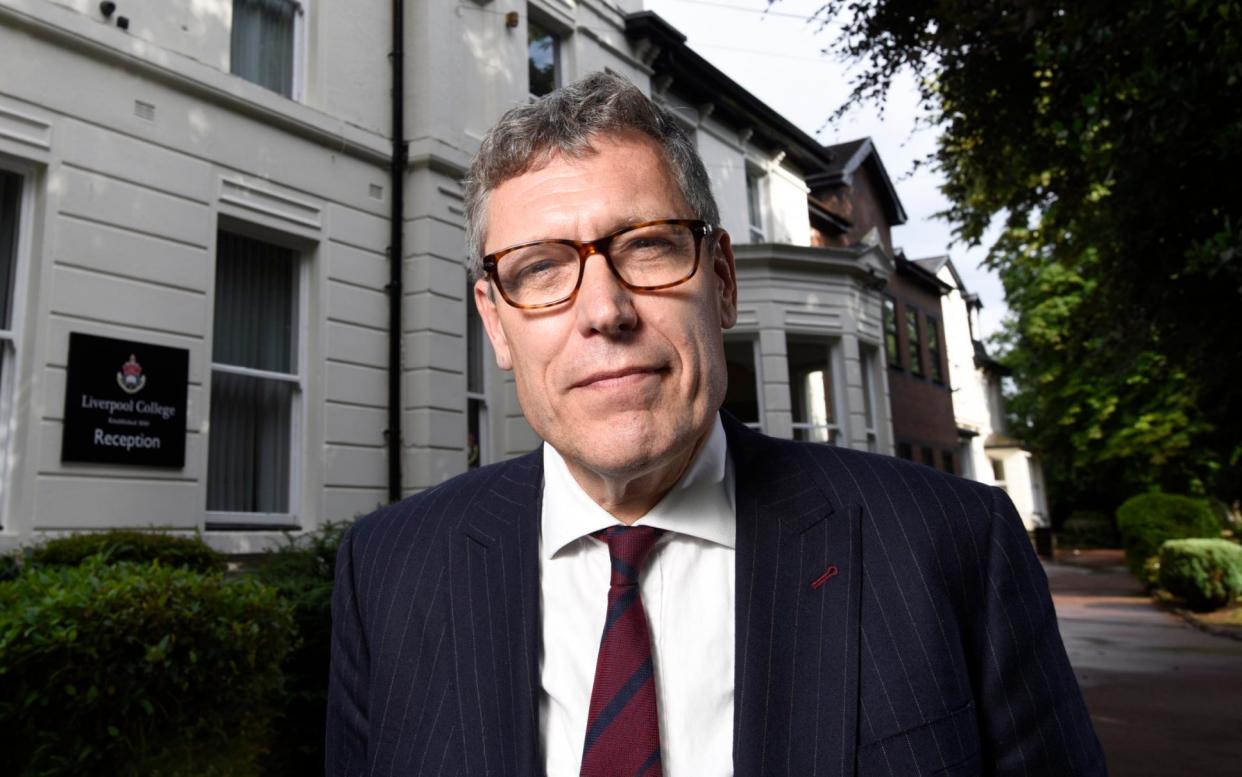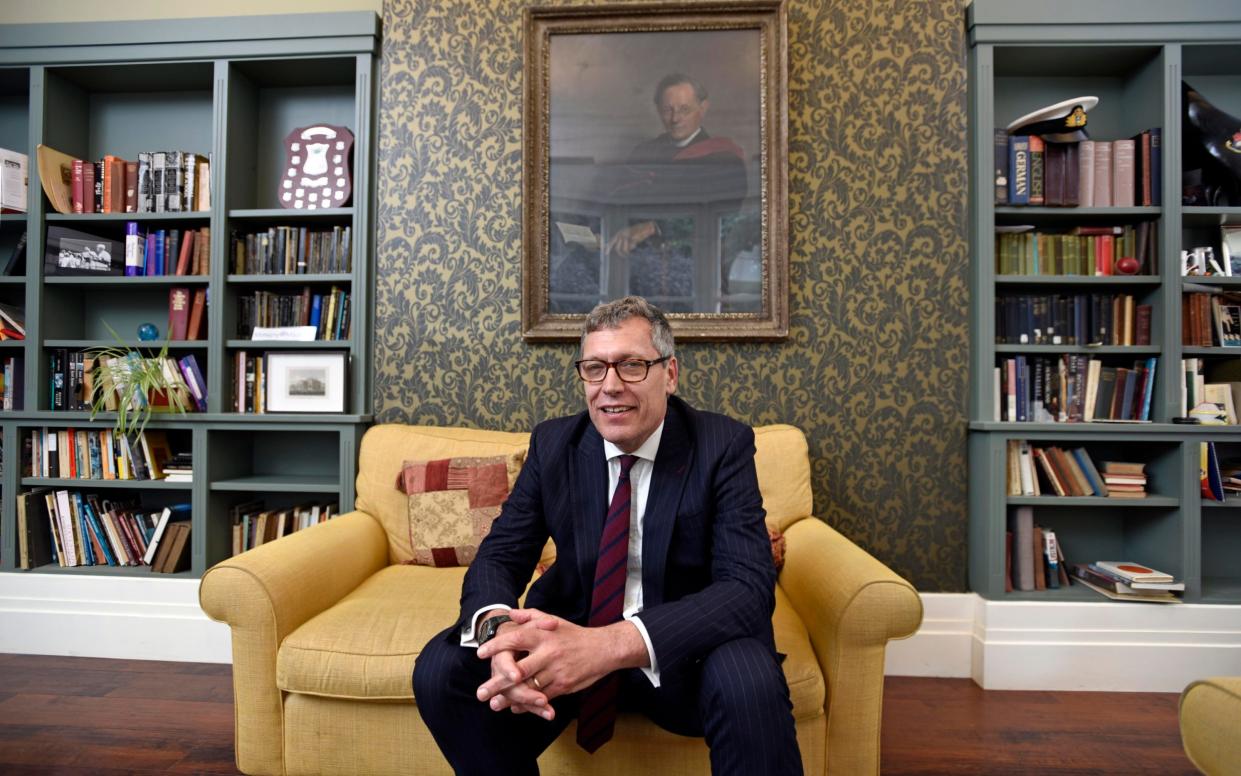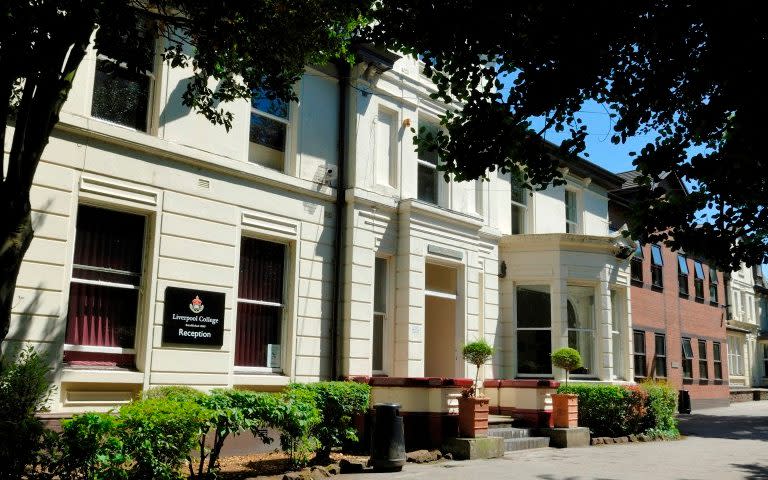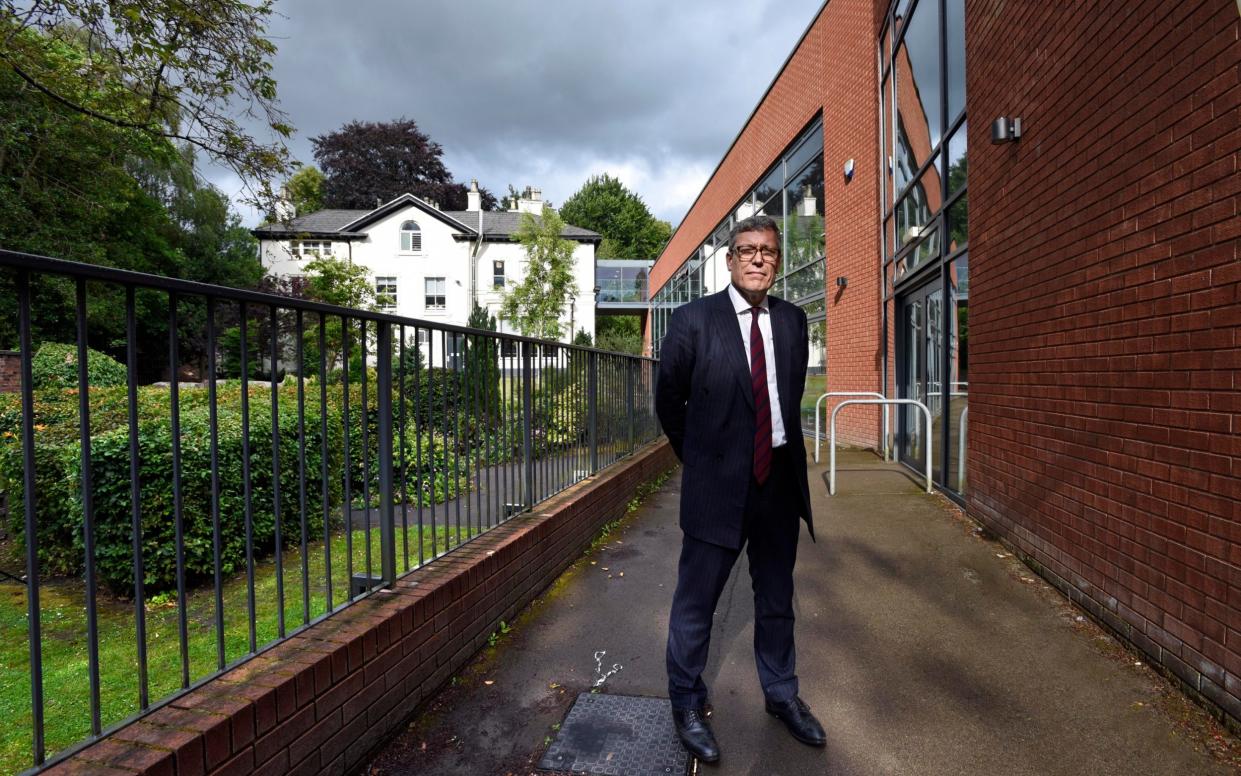How to convert a school from private to state, according to a trailblazing headmaster

With more than 200 acres, a boarding house and classics library, plus a prestigious history – its former pupils include the prime minister William Gladstone, the conductor Simon Rattle and the actor Rex Harrison – Liverpool College seems like any traditional British independent school. Situated in an affluent part of the city, boys and girls aged from four to 19 run around its grounds in red tartan uniforms complete with ties and blazers.
But in 2013, over 170 years since it opened, the private college became a state-funded academy open to all in Liverpool and the wider north-west region. It was a natural move, says the headteacher Hans van Mourik Broekman, who has been at its helm since 2008.
“Liverpool College was founded in 1840 to provide an education to everyone in Liverpool,” says Van Mourik Broekman. “There were night classes for illiterate people and children of all social classes were invited to attend.”
An education for pupils of all means “was what our founders wanted,” he says. “They didn’t have in mind that it would become open only to some tiny group that could afford £15,000 in school fees.”
What’s more, the majority of its most strikingly “private school” elements were not available to pupils until its transition to state. “We didn’t teach Latin or have a classics department while we were a fee-paying school,” says Van Mourik Broekman, who steps down at the end of August to become a chaplain at a nearby Catholic school. “There was no orchestra because we didn’t have enough pupils to play in it. Now we’ve got an orchestra of 60 and a choir of 120.”

When the school announced it would cease to be a fee-paying institution “most parents only asked whether I would stay, whether the staff would stay, and what the benefits would be to their children,” he explains. Far from meeting him with snobbish retribution, parents at the ancient college – who were spending as much as £33,000 a year in fees if they had three children at the school, Van Mourik Broekman says – rejoiced. “One lady came up to me and actually kissed me, and said thank you, this is great, I can now afford to have my fourth child,” he recalls, with a laugh.
The headteacher, 57, was born in America to Dutch parents, who returned to the States in time for his secondary education at a private Benedictine high school. It was there that: “I decided I badly wanted to be a classics teacher,” he recalls. He then went on to study classics at St Andrews in Scotland, where he says he began his “love affair” with British education.
Since graduating, Van Mourik Broekman had only ever taught in independent schools, until Liverpool College made the switch. To this day he still teaches years 7, 10 and 11, as well as delivering lectures for sixth formers, “which is unusual for a state head”, he says. “The moments that I spend with those kids are the highlights of my job and of my day,” he adds.
What drew him to teaching in the first place? “I wanted to help young people flourish and help them live life to the fullest,” he says. It was this too that inspired him to bring the college into the state sector, with the support of its board of governors – not, as many have assumed, the school’s financial position.
In his three-year-long project to transform the school, Van Mourik Broekman heard it said that it was wrong for the state to be “bailing out private schools that should fail”. This sort of argument “was the most absurd of all” because “we currently provide 1,700 school places in Liverpool and I don’t think the government could have had a better deal than the deal they got when they allowed us to become state,” he says. “Besides we were in rude health. We had a big staff, the right facilities, and the educational capacity to grow with more pupils who previously couldn’t afford this education.”
Since Liverpool College led the way, some 50 other private schools have now made a sidestep into the state sector. But he says, “we were very much a going concern at the time,” with many other prestigious schools watching carefully to see how the college’s transition would play out.
Now following Labour’s pledge to impose VAT on private school fees, and parents threatening to withdraw their children from the independent system, many fee-paying schools are considering a similar move.
“I’ve spoken to at least 20 school heads who want my advice on converting their schools,” Van Mourik Broekman says. As he sought to turn Liverpool College into a state school “the Department for Education was a tough bargainer, they knew what they wanted and why they wanted it. In my view it was pretty clear that if we didn’t have the strengths we did, it wouldn’t go ahead.”
Making a case
When Van Mourik Broekman first began to consider taking the school into the state sector, three years before the change was announced, there were two established routes that independent schools such as his could follow.
One was to become a “free school” by joining the new schools’ network, where “schools would request permission to start a new free school, which was a continuation of the old private school,” he explains.
The other option was to make a petition to Michael Gove, the then education secretary, who Van Mourik Broekman describes as a “reforming and crusading” minister. It was this route that was chosen by Liverpool College. Since then it has been much harder for schools to get the Department for Education to budge, he explains.

While he holds little hope that things could change under a Labour government, it is possible that Bridget Phillipson, the recently appointed Education Secretary, could be happy to hear petitions from private schools, Van Mourik Broekman believes.
Most important for his school was to “make the case that this would improve and drive social mobility in Liverpool,” he says. Then “we pointed out the unique curriculum that all-through [age 4 to 19] schools provide, stressed that we wouldn’t have a faith-based curriculum as that was quite significant in Liverpool,” where many schools at the time had faith as an entry criteria, and “stressed our reputation for being good at educating people” in an academic as well as holistic sense.
Securing wealthy supporters
Van Mourik Broekman is open about the fact that the success of his college in its state school era has in no small part been down to the support of donors. “State schools have far less money to spend on each pupil,” he explains – so to provide a private school-level education to students, funds must be sought elsewhere. “As a fundraiser I’m an elephant hunter and fortunately I ran into some elephants,” he says.
“You have got to use every single friend you can make who believes in your mission,” says van Mourik Broekman. Liverpool College’s financial backing has been found in its eminent group of alumni, but also from the likes of Jimmy Mulville, the producer behind TV hit Derry Girls, who is “a Liverpool man that studied classics,” as well as other anonymous philanthropists.
“Some people knew us and our work already,” he says, “while others quite serendipitously crossed our path and liked what we were doing.” There are plenty who support private-to-state transitions for the good they can do for an area and for social mobility in Britain, according to this head. It is simply on schools to find them.
Be prepared to grow
Any school that becomes a state institution must expect to grow, says Van Mourik Broekman, as the ability to take on pupils is one of the reasons why such a request for taxpayer funding would be approved. But schools needn’t do that all at once – Liverpool College has in fact just finished its cautious growth, from 1,100 pupils in 2013 to 1,700 today.
“We came under a lot of pressure from local authorities to grow more quickly than it would have been right to,” he says. The school remains the third most oversubscribed in the country. Yet it stayed firm and “made a deliberate decision to grow gradually,” first allowing large numbers of pupils into the school’s typical intake years such as Year 8 and sixth form.
Facilitating this meant a huge amount of building work, funded by supporters, “which we were fortunate enough to have the ground to build on for,” he says. Classes that were as small as 20 are now near 30, typical for any state school.

That’s something for schools to embrace, Van Mourik Broekman says, but to do this they must accept that they’ll need to let in students of all abilities. The school has massively upped its special educational needs and disabilities provision, and has introduced a range of vocational Btecs and technical GCSEs alongside the more traditional subjects.
“We want for any child in Liverpool to be able to come here and get a quality education that matches their unique skills,” the head explains.
‘Lead’ a diverse school, don’t ‘manage’ it
Liverpool College is now more ethnically and religiously diverse than even the city of Liverpool itself, a major difference from its composition as an independent school, which was largely composed of white middle-class children, the head says.
“This is something you never stop managing,” says Van Mourik Broekman, though he prefers to describe diversity at the school as something that is “lead”. It hasn’t always been easy to navigate pupils’ complex and competing needs, he explains, “but if you have a group of people at the school who genuinely want it to be an open and inclusive place for everyone, then you’re 95 per cent of the way there”.
One thing that made this easier for the school was that it had never been academically selective, and it is less divided into “sets” now than it was in the past. It has helped too that they’ve taken a slower approach.
The fundamental thing is not to be too rigid, he explains, and much the same approach should be taken when it comes to handling internal politics. “Our staff had a decade to get used to it, really,” he says. The key was that the staff on the whole “really wanted and believed in” his plan.
Some 98 per cent of staff remained at the school after the change was announced, though most had spent their whole careers in independent schools. A similar number of parents chose to keep their children enrolled, too.
Maintaining tradition – selectively
It was never Van Mourik Broekman’s intention to rip the school’s history and culture out by the roots. The school has certainly changed after a decade in the state sector, he admits, but “some of that old private school tradition is useless anyway” and does not always “build up” young people, he says.
Despite the fact that he is not attached to such traditions for their own sake, Van Mourik Broekman believes that “a lot of that stuff is great … Things like Saturday morning sport, singing of the school song, Latin orations at speech nights, having prefects, all those things build students up and create a loyalty and enthusiasm for school.”
As such, “we retain a huge number of pupils right from primary school to sixth form,” he says, a key mark of the school’s success. By embracing the change and an influx of students from different backgrounds, the school has “sent more people to Oxbridge in the last 10 years than in the previous 25”.


